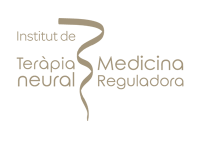9 Minutes
The contemporary medical paradigm is an efficient, empowered, multidisciplinary strategy that leverages data to influence athlete health, player preparedness, and on-field performance. Therefore, we have rethought medical technology in order to drive this paradigm and modernize decision-making.
Generally intended to improve the health and performance of athletes, performance is not limited to athletes and sports players. It enhances the quality of life and general performance. Medical, performance and associated professionals are all in the loop, and they integrate and collaborate in the Performance medical group systems.
Everyone can see the complete picture of their health; everybody can have a common understanding of the causes of injuries and their effect on performance. Everyone may collaborate to better results.
A UNIQUE METHOD
successful and proven integrative holistic conceptPerformance TREATMENT LASTING APPROACH
0 Before
Send Request
0 Before
Define Treatment Goals
1 week
Assessments
1-4 week
Integrative Holistic Therapies
5-12 week
Aftercare
12+ week
Refresher Visit
Performance Insights
latest news & research on PerformancePerformance Medicine
erformance Medicine is a branch of diagnostic and clinical medicine concerned with the enhancement of emotional, mental, and physical health and performance.
read moreAthlete's Foot Healing Stages
An athlete's foot is a commonly occurring infection (caused by a fungus). Foot fungus is a kind of ringworm. Tinea pedis is alternative terminology for an athlete's foot.
read moreBest Mental Performance Skills Every Athlete Must Master For Peak Performance
People frequently overestimate an athlete's physical ability, but mental skills, whether they have them or not, are just as important to their success.
read moreAccreditations



























































